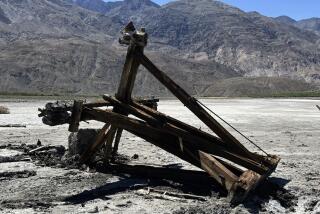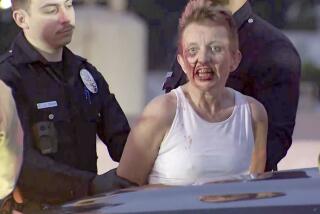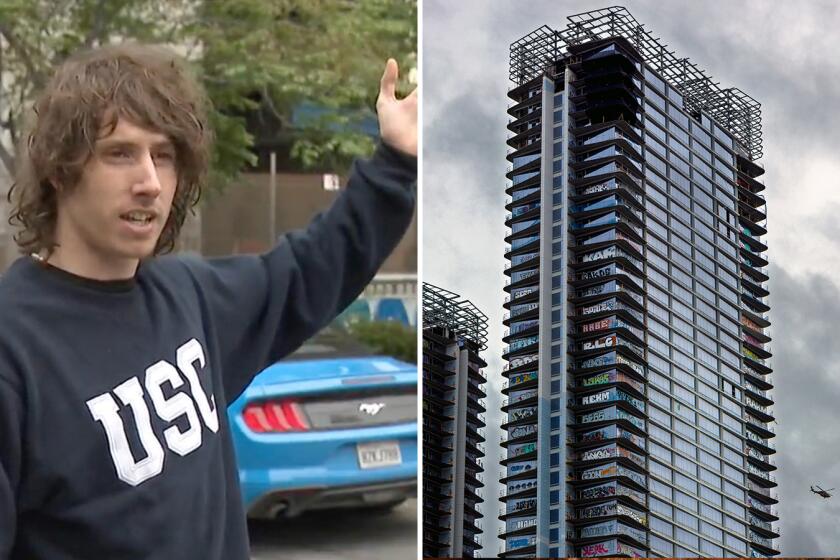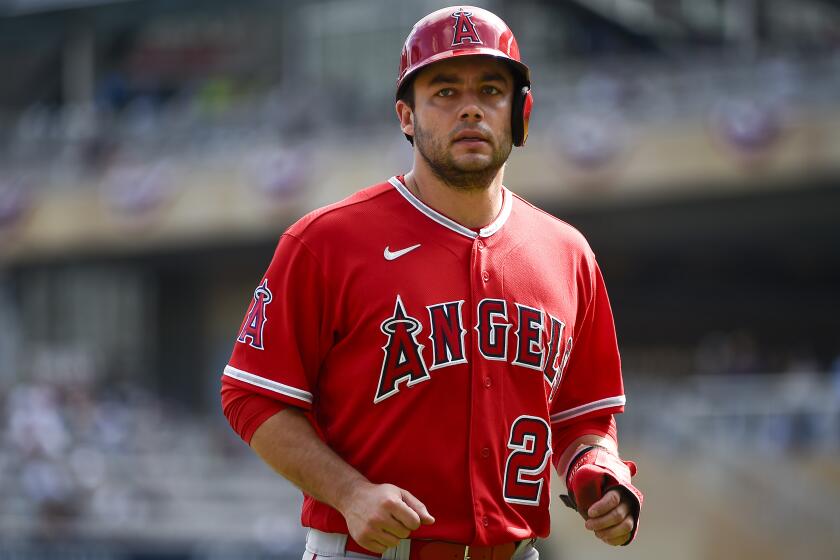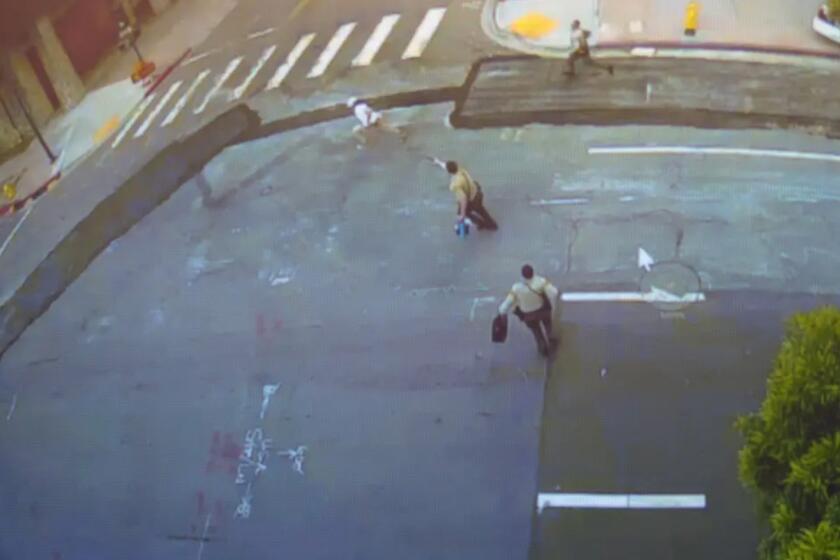LAPD Chief Backs Cameras in Police Cars
Los Angeles Police Chief William J. Bratton has endorsed an ambitious plan to place video cameras in police cars, a costly idea that might help the department emerge from its five-year monitoring by the federal government.
Bratton said in an interview that he was already selling the idea -- and its $25-million price tag -- to city officials not just as a reform in police procedures but as a cost-savings tool.
“Is the city going to spend money to save money? That is how I envision it,” he said. “Because you will save all this money on liability lawsuits.”
Bratton’s support is the latest sign that the camera proposal is picking up steam in many quarters, more than a decade after the Christopher Commission first recommended that the Los Angeles Police Department put cameras in cars in the wake of the Rodney G. King beating.
While police officials in the past were wary, the police union now supports the idea, as do community activists and some city leaders.
The idea came back to the forefront last week when the federal monitor overseeing department reforms in the wake of the Rampart corruption scandal said the LAPD must do more to show that it is not biased toward minority groups. He said one way to do that would be to install video cameras in cars so there would be a record of interactions between officers and the public.
Departments around the country have been using cameras in cars for years, but the LAPD -- despite numerous scandals involving officer misconduct -- has yet to make widespread use of them.
Bratton said he has already asked Mayor Antonio Villaraigosa for funds to start a pilot program. He said such a program would allow the city to iron out kinks in the video equipment before ultimately putting cameras in all 1,200 patrol cars.
It remains unclear whether the City Council shares Bratton’s enthusiasm. Bratton battled with the council for years over funds to hire 320 officers, a move he said was crucial to the department. Though some of those hires have now been made, voters earlier this year rejected a ballot measure that would have raised taxes to pay for more police services.
Still, Councilman Jack Weiss, head of the council’s Public Safety Committee, said his colleagues may be swayed by federal monitor Michael Cherkasky’s urging that the LAPD install cameras as a means to ensure compliance with the consent decree. The decree, which requires the LAPD to complete a number of reforms begun after officers in the Rampart Division framed suspects and committed other crimes, is supposed to end in June. But Cherkasky says that the reforms are not likely to be completed by then and that the consent decree is likely to be extended.
“How much clearer could the message from the monitor be? If the city doesn’t put cameras in cars, the price could be higher,” Weiss said. “We need to elevate the issue.”
Hundreds of departments across the country use video cameras in cars. But the LAPD has lagged far behind.
A pilot program in the mid-1990s faltered because the LAPD had no place to store the thousands of videotapes and the maker of the camera system went bankrupt.
The bulky cameras also were not popular with officers, said Cmdr. Charlie Beck.
Today attitudes have changed, Beck said, from commanders to officers, who have expressed support for having a recording of their actions. Many officers already carry their own tape recorders as protection against charges of misconduct.
The LAPD is now grappling with several cases in which officers’ actions are in dispute. One is the February shooting of 13-year-old car-chase suspect Devin Brown by an officer who said he shot the young driver in self-defense to avoid being struck by the vehicle. Another involves the alleged beating of Tony Muhammad, a Nation of Islam minister and community activist. Muhammad has accused police of kicking him in the face after he was handcuffed during an arrest in August. Police said his injuries occurred when he was forced to the ground before being handcuffed.
“Video in cases like Devin Brown and Tony Muhammad would make it a lot simpler to resolve them,” Beck said.
There are now more than 17,500 cameras in police vehicles in the United States, according to a 2004 International Assn. of Chiefs of Police study. That report found cameras enhanced officer safety, improved agency accountability and reduced agency liability.
Nationwide, about 72% of state police and highway patrol vehicles have video systems. The Justice Department has spent $21 million in grant money to help local departments buy cameras.
Bratton said the evidence shows that other departments that have tried cameras in cars have found good results.
“New Jersey [State Police] did it,” he said. “They had a phenomenal turnaround in ‘he said, she said.’ ”
Bratton said the LAPD is at a crucial moment when the cameras have the support of department brass as well as officers and community activists.
“It is a win-win-win,” he said. “But it is not in our court. It is up to the political establishment.”
LAPD officials estimate a digital video system for all 1,260 patrol units plus storage would cost $25 million. Beck said the department would hope to secure $2 million to $3 million from city efficiency funds to equip cars in the Southeast and 77th Street divisions for the pilot program.
Officials are looking for ways to reduce the costs.
Under city law, Bratton said, records must be stored for five years -- a situation that would require expensive servers to store the enormous amount of visual data from 24-hour police cars. Instead, Bratton said he wants the law changed so his department would have to keep video records for only two years.
It would be up to City Hall to find the money. City officials have talked about putting another police tax measure before voters in 2007. But with Cherkasky saying that installing cameras could help the city end the consent decree, officials may feel pressure to act more quickly.
Weiss said the city must move swiftly.
“There is a sickness in government that when something is really a good idea people say, ‘We’ll do it over the next seven years,’ ” he said. “Try that in the private sector and you’ll lose your job.”
More to Read
Start your day right
Sign up for Essential California for news, features and recommendations from the L.A. Times and beyond in your inbox six days a week.
You may occasionally receive promotional content from the Los Angeles Times.

